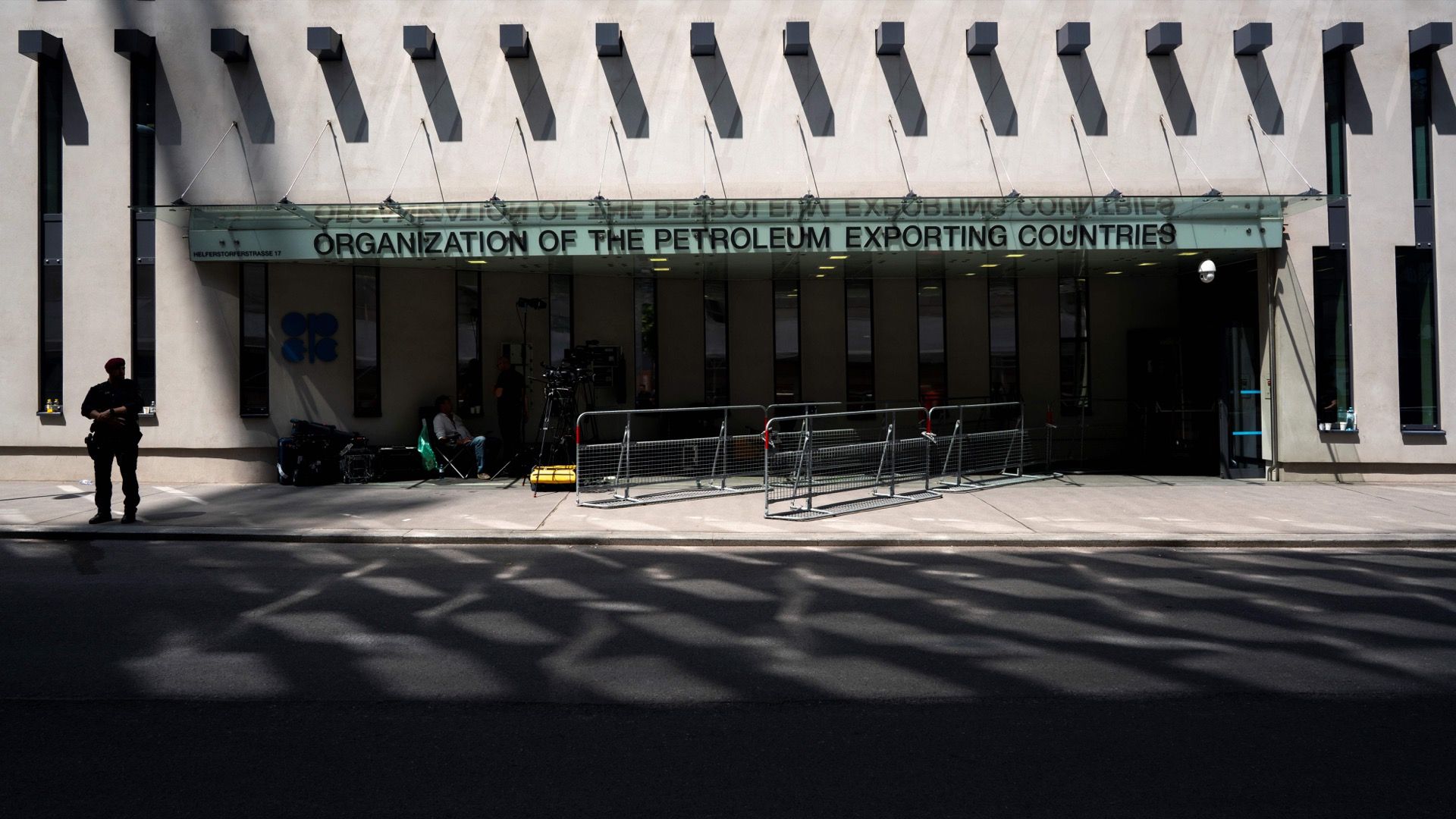Reports: Saudi Arabia and Russia reach major deal to cut oil production
Add Axios as your preferred source to
see more of our stories on Google.

Photo: Joe Klamar/AFP via Getty Images
OPEC+, led by mega-producers Saudi Arabia and Russia, reached a tentative agreement Thursday to impose large cuts in oil production as the coronavirus pandemic fuels an unprecedented collapse in demand, per Bloomberg and Reuters.
Why it matters: The revival of the OPEC+ collaboration patches up the early March rupture between the countries, which had pushed already depressed prices down much further by threatening to unleash even more new supplies into the saturated market.
- The news outlets, citing anonymous sources in the group, say the emerging OPEC+ agreement calls for cutting 10 million barrels per day in May and June.
- That would amount to roughly 10% of global demand levels before the outbreak, which analysts now see cutting around 25 million to 30 million barrels per day — or more — from global consumption in the near-term.
How it's playing: Oil prices rose earlier today in apparent expectation of the agreement, but later fell back.
- Prices surged late last week when talk of a very steep cut first surfaced. Today's limited move suggests traders have already priced the reductions in — and recognize they pale in comparison to demand losses.
- The global benchmark Brent crude was trading at around $32-per-barrel as of 2:30pm ET — around $10 higher than they were in the middle of last week but below where they started the day.
How it works: Per the Wall Street Journal, Saudi Arabia is pledging to curb 4 million barrels per day from April production levels, while Russia will scale back by 2 million barrels daily.
- "The tentative OPEC+ plan would see 10 million barrels a day of cuts through June, dropping to 8 million a day from July and then 6 million a day in the first quarter of next year," Bloomberg reports, citing an anonymous delegate to the meeting.
What they're saying: "The market's muted price reaction is a sobering indicator of the headwinds that remain, namely demand destruction," RBC Capital Markets analyst Michael Tran told Reuters.
- "If true, the preliminary production cut of 10 million bpd among OPEC+ members is a good first step, but it would still not be enough given the 20 million bpd+ supply overhang expected for the second quarter of 2020," the consultancy Rystad Energy said in a note when word of the agreement began emerging.
What's next: Energy ministers from G20 nations are slated to meet remotely Friday, and Russia and Saudi Arabia are hoping for millions of barrels per day in combined cuts from countries outside the OPEC+ group, including the U.S., the world's largest producer.
- The Trump administration has declined to offer firm commitments, but he has repeatedly touted upcoming market-driven cuts in U.S. production as low prices prompt oil and gas companies to scale back.
Go deeper: EIA forecasts U.S. oil boom will reverse amid coronavirus disruption
